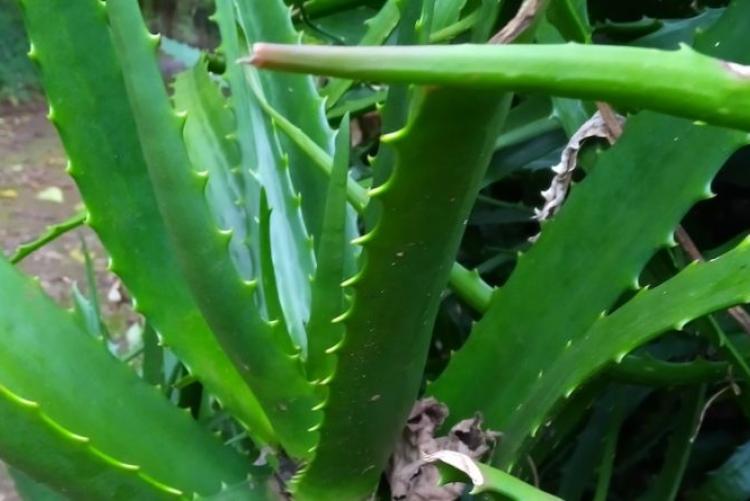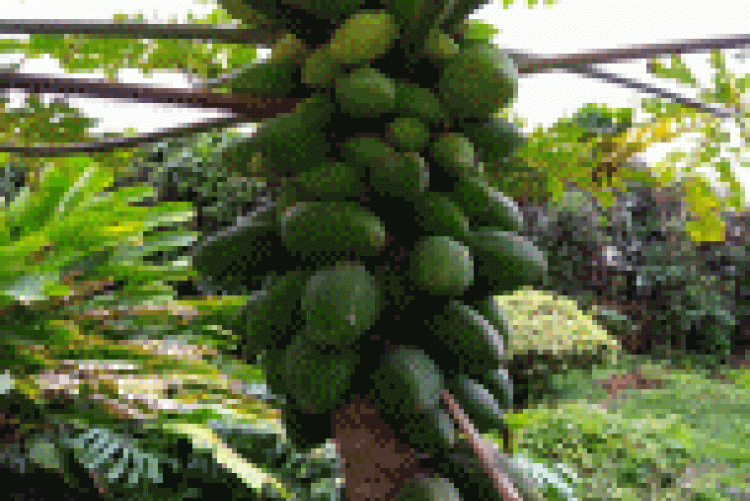The main objective of this blog is to emphasize the importance of herbal medicine as a possible alternative and effective treatment of coronavirus disease 2019. Specific objectives include, to highlight:
- Herbal medicine as important component of primary health care
- The importance and relevance of herbal medicine as a prospective low-cost treatment of COVID-19
- The place of the environmental conservation and management for continued provision and uptake of herbal medicines, and;
- The need for policy and multidisciplinary research to develop herbal medicine sector at the national level
What is COVID-19?
Coronavirus diseases 2019 (COVID-19) is an acute virus (SARs-coV-2) which has caused a global pandemic. Patients with COVID-19 exhibit symptoms such as fever, cough, fatigue and gastrointestinal impacts in some patients. The elderly and those with underlying disease are more susceptible to the infections (Guo et al 2020). It is theorized that the disease is zoonotic and could have originated from bats, while others link the disease to laboratory tests (World Health Organization (WHO) 2020 and Euronews 2020). Currently, four treatments are being administered in different parts of the world (remdisivir, lopinavir and ritonavir, lopinavir and rotinavir plus interferon beta, and chloroquine) (International Aids Study 2020). Remdesivir also belongs to the class of drugs that has been used to treat the Human Immunodeficiency virus (HIV) patients. The question is: Could herbal medicines be developed further, to effectively treat COVID-19?
Herbal Medicine
Herbal medicine has been in use for over 3 millennia (Mwangi et al n.d and Sanderoff winter 2000-2001, Bhat et al 2019). More than 80 percent of African’s population still rely on these important biological resources, with the use transcending social status, gender, ethnicity or religion. The herbal medicines are important for their anti-flamatory, heamostatic, expectorant, antispasmodic or immune-stimulatory properties (Vickers 1999). Aspirin, digoxin, quinine and morphine have herbal origin and have been effective for a long time. Herbal medicine has been used in Kenya with doctor to patient ratio of 1:987 in urban areas and lower in rural areas. The use of Herbal medicine has been applied in the treatment of COVID-19 as is witnessed in many African countries using the Madagascar’s ‘Covid-Organics’ (a plant-based cure, derived from Artemisia, with known efficacy in treatment of Malaria, in addition to other indigenous herbs). This is a confirmation that African countries, including Kenya, using appropriate policy formulation can carry out research on herbal medicine to find out an indigenous cure for COVID-19.
COVID-19 and Herbal Medicine
Nearly 25 percent of drugs developed in industrialized countries owe their origin from the Tropical rain forests – Africa, Asia and Latin America (giving returns of over US Dollars 65 billion), yet these regions still remain classified as underdeveloped. Could exploitation of herbal medicine opportunities provide an answer to some development challenges in these areas, including solutions to deal with emergent diseases like COVID-19? A research on COVID-19 would be an important national strategic research that require prioritization. These traditional herbal medicines have proved to be effective in the treatment of chronic conditions like asthma, eczema, premenstrual syndrome, rheumatoid arthritis, migraine, menopausal symptoms, chronic fatigue as well as irritable bowel syndrome (Vickers 1999). In Uganda, herbal medicine is popularly used among pregnant women (Kyegombe et al 2016), and in South Africa, herbal medicine was used among HIV/AIDs patients and improved their overall health and immune system, thus emerging as a supplementary treatment to HIV/AIDs patients (Tshibangu et al 2004). As a result there is room for research on herbal medicine to deal with COVID-19 too.
The use of herbal medicines gained recognition and became an essential component of primary health care in many parts of the world, particularly in Africa after declaration of the period 2000 to 2020 as the decade of African Traditional medicine (Mwangi et al n.d and Tshibangu et al 2004). Some of the advantages for using herbal medicine include: their affordability to most patients (Sanderoff winter 2000-2001), the belief that herbal medicines have more efficacy and comparatively low side effects associated with conventional medicines (Bhat et al 2019). COVID-19 has emerged to be an expensive disease to treat and any comparatively low cost treatment is worth considering to deal with economic impacts of the disease at the household and national levels.
Herbal Medicine and the Environment
The successful use of herbal medicine depends upon a number of factors- the form and the concentration of the herb, the part of the plant used, the time period of treatment and the environment in which the plant was grown or the time of the year it was harvested (Sanderoff, winter 2000-2001). Some of the gaps that have limited the use of herbal medicines include: inadequate education and awareness on the use of herbal medicines, incomplete legal compliance to deal with alternative medicine and reluctance by the national governments to integrate herbal medicine into national conventional medicine systems, yet both herbalists and pharmacists are willing to be trained on herbal medicine (Basheti 2017,Vickens 1999, Mwangi n.d.). These are policy gaps which call for a multidisciplinary research to address the issues and the challenge of COVID-19.
Policy and Research needs
The following policy concerns are a priority for national development: Policy formulations are required to conserve the sites which are rich in herbal medicines, support farmers that grow and preserve these biological resources, establish a structure for collection, processing and patenting for commercial use as well as enhancing collaboration between herbal and conventional medical practitioners.
These important policy areas should be supported by a multidisciplinary/ trans-disciplinary research to delimit/map the eco-regions rich in these plant resources, investigate environmental conditions under which plants developed (biophysical, socio-cultural and economic and behavioral characteristics), relationship between the nature’s provision of these herbs and disease incidence on those regions, efficacy, and conditions for industrial processing and manufacturing, among others. We all must act now for an informed, healthy and successful future population in Kenya, African and the world.
References:
Basheti, I.A., Elayeh, E.R., Al Natour D.B. and Saqf el Hait, S. 2017. Opinions of pharmacists and herbalists on herbal medicine use and receiving herbal medicine education. Jordan Tropical Journal of Pharmaceutical Research, 16(3):689-696, http://www.tjpr.org http://dx.doi.org/10.4314/tjpr.v16i3.26.
Bhavana B Bhat1, N Udupa2, Virendra S Ligade1, Saleemulla Khan3, D Sreedhar1, 2019, Assessment of knowledge and attitude of patients on herbal medicine use in Udupi region, Karnataka, India, Tropical Journal of Pharmaceutical Research January 2019; 18 (1): 117-121, http://www.tjpr.org http://dx.doi.org/10.4314/tjpr.v18i1.17.
Guo, Y., Cao, Q., Hong, Z., Tan, Y. Chen, S., Jin, H., Tan, K., Wang, D., and Yan, Y. 2020. The origin, transmission and clinical therapies on coronavirus disease 2019(COVID-19) outbreak – an update on the status. Military Medical Research (2020) 7:11 https://doi.org/10.1186/s40779-020-00240-0.
Kyegombe, W., Mutesi, R.I., Bakulumpagi, D., Egesa, I.W., Maweje, S., Openy, A., Mahganga, M. and Ocaya, A. 2016. Use of herbal medicines among Pregnant women attending antenatal clinic at Kiryandogo General Hospital, Uganda. East African Medical Journal, 93(10):536-541
Mwangi, J.N., Mungai,N.N., ThoiThi, G.N. and Kibwage, L.O. (n.d) Traditional Herbal Medicine in National Healthcare in Kenya. East and Central African Journal of Pharmaceutical Sciences, 8(2):22-26.
Tshibangu, K.C., Worku, Z.B., De Jongh, M.A., Van Wyk,A.E., Mokwena, S.O., and Peranovic, V. 2004. Assessment of effectiveness of Traditional Herbal Medicine in Managing HIV/AIDs Patients in South Africa. East African Medical Journal, 81(10): 499-504.
Sanderoff, B.T. Winter 2000-2001. Herbal Medicine: Use with Caution and Respect. Journal of the American Society on Aging, Vol. 24 (4): 69-74.
Vickers, A. and Zollman. C. 1999. ABC of Complementary Medicine: Herbal Medicine. BMJ: British Medical Journal, 319 (7216): 1050-1053.
Dr. Alice A Odingo, Department of Geography and Environmental Studies
- Log in to post comments


